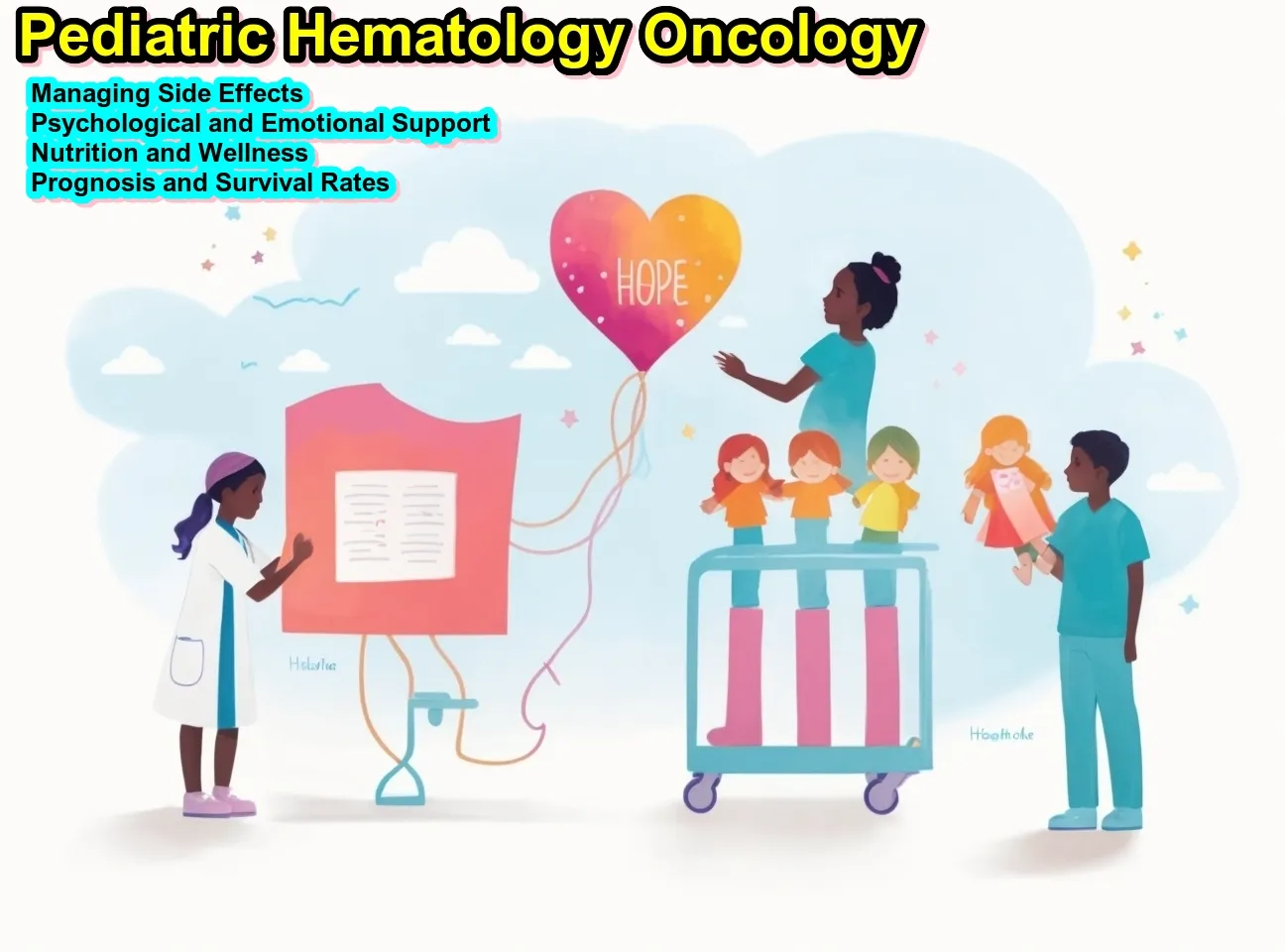
Introduction of Pediatric Hematology Oncology
Pediatric Hematology Oncology is a specialized field of medicine that deals with the diagnosis and treatment of blood disorders and cancers in children. It’s a challenging journey for both the young patients and their families, but understanding the basics, treatment options, and the hope that lies ahead can make a significant difference. In this article, we will delve into the world of pediatric hematology oncology, exploring its complexities and potential for positive outcomes.
Understanding Pediatric Hematology Oncology
What is Pediatric Hematology Oncology?
Pediatric Hematology Oncology is a medical subspecialty that focuses on blood disorders and cancers in children. It combines two essential fields: hematology, which deals with blood-related diseases, and oncology, which is dedicated to cancer diagnosis and treatment.
Prevalence and Impact
Childhood cancer and blood disorders are relatively rare compared to adult cases, but they have a profound impact. They affect not only the child but also the entire family, leading to emotional, physical, and financial challenges.
Common Blood Disorders and Cancers in Children
Several blood disorders and cancers can affect children, including leukemia, lymphoma, anemia, and clotting disorders. Understanding the specific condition is crucial for effective treatment.

Diagnosis and Screening
Early Detection: A Crucial Step
Early diagnosis is often the key to successful treatment. Regular check-ups and awareness of potential symptoms are vital for catching these conditions in their early stages.
Diagnostic Procedures
Diagnosis involves various tests and procedures, including blood tests, bone marrow aspirates, and imaging. These tests help medical professionals determine the type and stage of the disease.
Importance of Genetic Testing
Genetic testing can provide valuable information about a child’s risk of developing certain blood disorders or cancers. It can also guide treatment decisions.
Treatment Approaches
Multidisciplinary Team Approach
Treating pediatric hematology oncology requires a team of specialists, including pediatric oncologists, hematologists, surgeons, and nurses. This collaborative approach ensures comprehensive care.
Chemotherapy, Radiation, and Targeted Therapies
Treatment may involve chemotherapy, radiation therapy, or targeted therapies, depending on the specific diagnosis. Each treatment has its benefits and potential side effects.
Stem Cell Transplantation
In some cases, a stem cell transplant may be necessary to replace damaged or diseased blood-forming cells. It’s a critical step in the treatment of certain conditions.
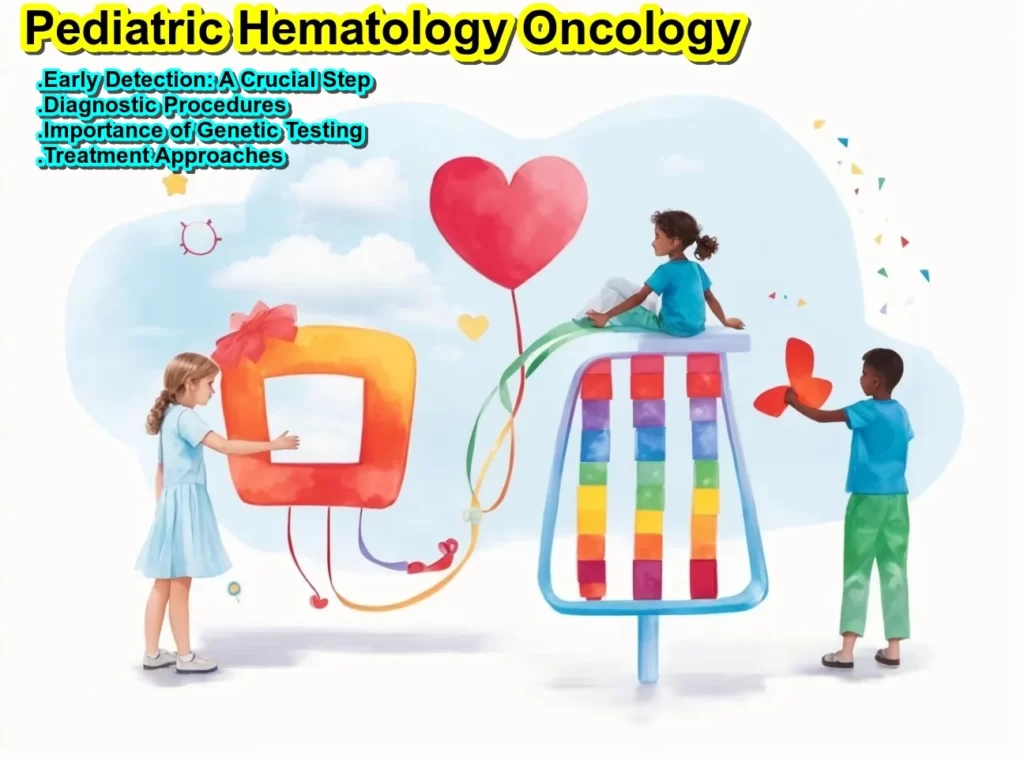
Supportive Care
Managing Side Effects
The side effects of treatment can be challenging, and supportive care is essential to help children manage these symptoms and maintain their quality of life.
Psychological and Emotional Support
Pediatric patients and their families may require psychological and emotional support to cope with the stress and uncertainty of diagnosis and treatment.
Nutrition and Wellness
A balanced diet and physical activity play a vital role in a child’s overall well-being during treatment and recovery.
Prognosis and Survival Rates
Factors Affecting Prognosis
Numerous factors, including the type and stage of the disease, influence prognosis. Understanding these factors can help families make informed decisions.
Survivorship Programs
Survivorship programs provide long-term care plans for children who have completed their treatment, focusing on their overall health and well-being.
Celebrating Success Stories
Despite the challenges, many children overcome pediatric hematology oncology, leading healthy and fulfilling lives. Their stories offer hope and inspiration.
Research and Breakthroughs
Ongoing Research in Pediatric Hematology Oncology
Researchers continue to make significant advancements in the field, exploring new treatment options, better therapies, and potential cures.
Promising Developments
Recent breakthroughs in targeted therapies and immunotherapy have shown promise in improving treatment outcomes with fewer side effects.
Clinical Trials and Their Significance
Clinical trials play a crucial role in testing new treatments, offering children access to cutting-edge therapies that could make a difference.
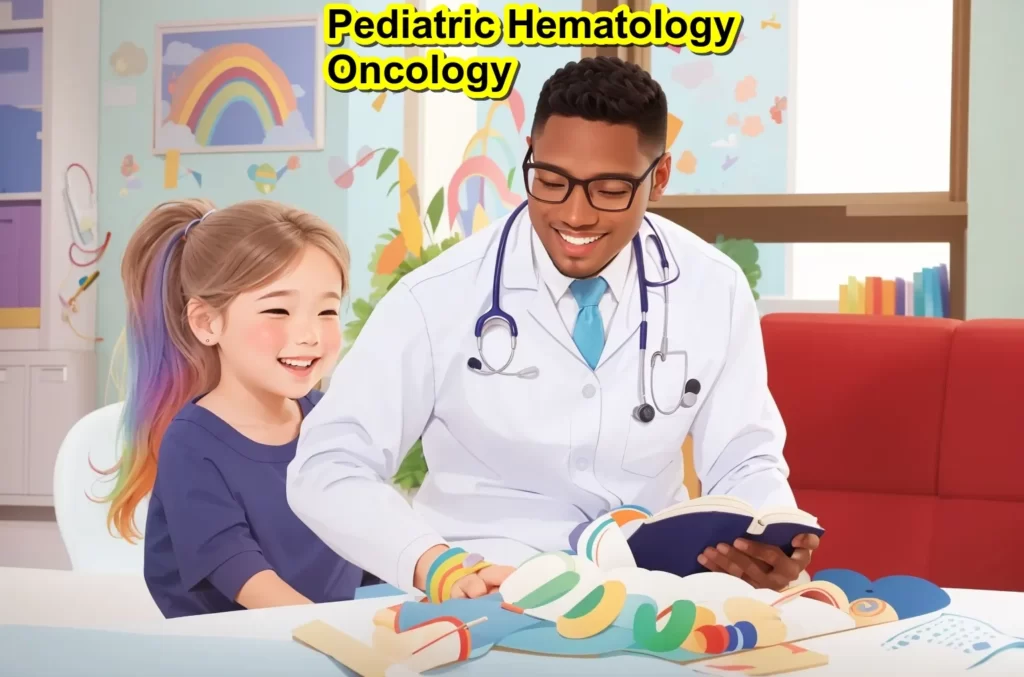
Life Beyond Treatment
Quality of Life After Treatment
The goal of treatment is not only survival but also ensuring a good quality of life for survivors. Follow-up care is essential for monitoring health.
Transitioning to Adult Care
As pediatric patients grow, they eventually transition to adult care. This phase requires planning and support to ensure continuity of care.
Support for Families
Families of children with pediatric hematology oncology need ongoing support. Support groups and resources can help them navigate the challenges.
Financial and Emotional Burdens
Coping with Medical Expenses
The cost of treatment can be substantial, and families may need assistance in managing medical expenses.
Mental and Emotional Support
Families often experience significant stress and emotional strain. Counseling and support can help them cope with these challenges.
Community and Charity Resources
Various organizations and charities provide financial and emotional support to families facing pediatric hematology oncology.
Hope and Resilience
Stories of Courage
Numerous children and families have shown incredible resilience in the face of adversity. Their stories inspire hope.
Building a Supportive Community
Families and survivors can find strength and hope in connecting with others who have faced similar challenges.
Fostering Hope for the Future
The future of pediatric hematology oncology looks promising, with ongoing research and a growing understanding of these conditions.

Pediatric Hematology Oncology Summery
In the world of pediatric hematology oncology, hope is a powerful force. Despite the challenges, children and families find strength, support, and the potential for brighter tomorrows. The journey is difficult, but it is not without hope.
FAQs
Is pediatric hematology oncology different from adult oncology?
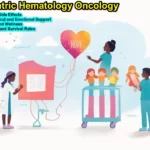
Pediatric hematology oncology focuses exclusively on children, while adult oncology deals with cancer in adults.
What are the most common types of childhood cancers?

Leukemia, lymphoma, neuroblastoma, and brain tumors are among the common childhood cancers.
How can I support families dealing with pediatric hematology oncology?
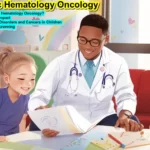
Offering emotional support, volunteering with charities, or donating to organizations can make a significant difference.
Are there any lifestyle changes that can reduce the risk of childhood blood disorders and cancers?

Ensuring a balanced diet, regular exercise, and a smoke-free environment can help reduce some risks.
Where can I find more information about ongoing research and clinical trials in pediatric hematology oncology?

Research hospitals, medical centers, and pediatric oncology organizations often provide updates on clinical trials and breakthroughs.
What is a pediatric hematology oncology?

Pediatric hematologists and oncologists can identify, manage, and treat the following conditions in kids and teenagers: Leukemias, lymphomas, brain tumors, bone tumors, and solid tumors are among the cancers. diseases affecting the blood’s white, red, and platelet cells are among these.
What is hematology or oncology?

The terms “hematologist” and “oncologist” refer to two distinct medical specialties. Hematologists are experts in identifying and treating blood conditions. Oncologists are specialists in the diagnosis and management of cancer. An expert in both fields is a hematologist oncologist.
Who is a Paediatric oncologist?

All cancers in children, including leukemia, bone cancers, Wilms tumors, brain and spinal cord tumors, among others, are treated by pediatric oncologists. Most children with cancer are cured and able to spend peaceful lives with quick, appropriate, and comprehensive therapy.
Why do you go to hematology oncology?

These doctors are experts in the treatment of leukemias, multiple myelomas, Hodgkins and non-Hodgkins lymphomas, as well as other blood malignancies. An additional area of focus for a hematologist-oncologist is the treatment of solid tumors.
What are the 3 most common blood disorders?

Anemia, bleeding disorders including hemophilia, blood clots, and blood cancers like leukemia, lymphoma, and myeloma are examples of common blood illnesses. If you think you might have a blood issue, talk to your doctor as soon as possible.




